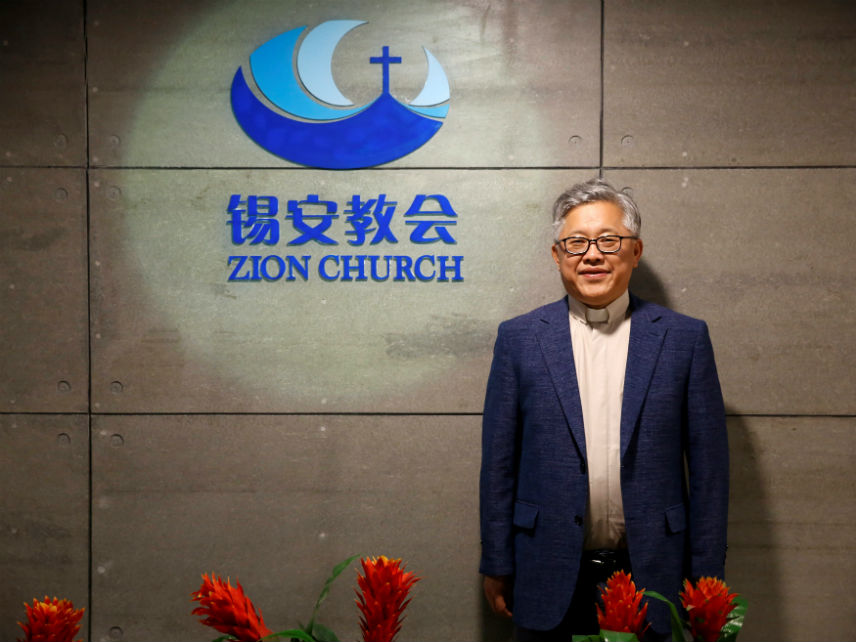China 'Legally Bans' a Protestant Church Over Surveillance
The church denied the government's request to install CCTVs.

The Chinese government's religious crackdown now includes a ban on a large Protestant church in Beijing.
The Zion Church hosted hundreds of worshippers for years, and until April it enjoyed "relative freedoms," according to Reuters. But after the church rejected the authorities' request to install closed-circuit television cameras in its building, the government announced that it was "legally banned," officially for operating without officially registering its events. Since then, its "illegal promotional material" has been confiscated.
It isn't alone. In a joint statement released in July, more than 30 churches complained of "unceasing interference" from Chinese regulators. Meanwhile, the Associated Press reports that officials in the country are "destroying crosses, burning bibles, shutting churches and ordering followers to sign papers renouncing their faith." There are also reports of official discrimination against Muslims: Human Rights Watch recently accused the Chinese government of carrying out arbitrary detention, torture, surveillance, and indoctrination of the Turkic Muslim population in the northwestern part of the country.
The Chinese Constitution promises religious liberties to all citizens in Chapter II, Article 36:
Citizens of the People's Republic of China enjoy freedom of religious belief. No state organ, public organization or individual may compel citizens to believe in, or not to believe in, any religion; nor may they discriminate against citizens who believe in, or do not believe in, any religion. The state protects normal religious activities. No one may make use of religion to engage in activities that disrupt public order, impair the health of citizens or interfere with the educational system of the state. Religious bodies and religious affairs are not subject to any foreign domination.


Show Comments (26)